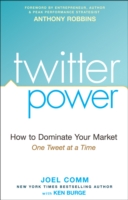- ホーム
- > 洋書
- > 英文書
- > Psychology
Full Description
This book delves into the history, current status, and possible future directions of psychoanalysis in the community, outside the traditional consulting room.
The book begins by digging into the individualistic origins of psychoanalysis and the clear definitions around what counts as psychoanalysis and what does not, even to this day. It also explores what has remained constant even as psychoanalysis has splintered into many schools of thought. Rather than rejecting individualistic thinking entirely, Altman investigates how a mix of individual- and community-focused work has been effective in various international settings and the role that the arts can play in informing psychoanalytic practice. In pursuit of the new doors that open as psychoanalysis expands in relational directions, this book considers a range of clinical programs that have recently evolved in non-traditional contexts: in schools, in the streets, and in religious and spiritual communities. With access to new and non-traditional modes of understanding and intervention, new possibilities become thinkable.
With international examples of successful community work and drawing on Altman's extensive clinical experience, this is key reading for psychoanalysts and psychotherapists wanting to explore community practice.
Contents
1. Community Psychoanalysis Transplanted from Europe to the United States and Beyond 2. Extended Diaspora 3. Community Psychoanalysis Takes Many Forms 4. Evolving Psychoanalytic Theory 5. COVID 6. In the Wake of COVID 7. Varieties of Efforts to Link the Social with the Intrapsychic 8. Race, Social Class, and Culture Join Gender and Sexual Orientation at the Center of Psychoanalytic Study, Adding Energy to Community Psychoanalysis in the United States 9. Psychoanalytic Ideals of Individualism, Objectivity, and Subjectivity: Can They All Coexist? 10. Nonlinear Dynamic Systems 11. Ankhi Mukherjee's Unseen City
-

- 電子書籍
- 山本周五郎 作品集 三十九







